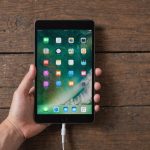Smartphones as Primary Tools for Everyday Computing
Smartphones have fundamentally shifted how people approach daily computing tasks, increasingly replacing traditional computers. Their advanced smartphone capabilities allow users to perform various functions once exclusive to PCs or laptops. From browsing the internet and managing emails to streaming media and editing documents, smartphones serve as versatile tools for everyday use.
In many cases, smartphones outperform traditional computers due to portability, instant accessibility, and connectivity. For example, when commuting or traveling, smartphones provide seamless access to social media, navigation tools, and quick information retrieval—tasks that would be cumbersome on a bulky laptop. Their integrated cameras and biometric security features further distinguish them from PCs.
Also to read : Maximize your profit: how to sell your ipad mini 7 fast
While traditional computers may still hold an edge for resource-intensive activities, the gap narrows continually. Smartphones now handle complex apps and multitasking with ease, making them reliable replacements for many users’ daily computing tasks. This evolution demonstrates a clear trend: smartphones are not just communication devices but comprehensive computing machines capable of fulfilling most everyday needs.
Key Everyday Tasks Streamlined by Smartphones
Smartphones excel in mobile productivity, enabling users to communicate and manage daily computing tasks efficiently while on the go. With powerful apps for mobile communication, emailing is seamless, allowing quick responses without needing a PC. Editing documents directly on the smartphone through dedicated apps has become increasingly practical, narrowing the gap between smartphones and traditional computers.
Topic to read : What Are the Unique Challenges of Smartphone Innovations in the UK?
Mobile banking also benefits significantly from smartphone capabilities. Secure transaction apps let users handle finances anytime, providing convenience and peace of mind. Grocery shopping, bill payments, and fund transfers are tasks easily executed on smartphones, reducing the need for desktop access.
This shift highlights how smartphones not only replace traditional computers in many contexts but also outperform PCs during mobile scenarios. For instance, a business professional can review and edit reports en route, respond promptly to client emails, and manage banking without waiting to reach a computer. The integrated features of smartphones—touchscreens, biometric authentication, and always-on connectivity—combine to streamline multitasking.
By centralizing communication, document editing, and financial management, smartphones have become indispensable tools, optimizing efficiency for modern users’ daily computing tasks.
Real-World Examples and User Benefits
Smartphones enhance productivity through versatile smartphone use cases across various environments. Consider a remote worker who relies on mobile apps for daily computing tasks, enabling seamless transitions between meetings and fieldwork. The convenience of smartphones shines when users access cloud files, respond to emails, and adjust documents directly on their device without waiting to reach a desktop.
One notable benefit is improved accessibility; smartphones integrate features like high-speed connectivity and biometric security to safeguard data while allowing quick access. For example, an entrepreneur managing client communications and scheduling on the move benefits from these capabilities, reducing dependency on bulky hardware.
Multi-device integration also simplifies workflows. Smartphones can sync with laptops and tablets, ensuring that notifications, files, and calendars update in real time. This connectivity reduces the need for multiple standalone devices, empowering users to rely mainly on their smartphones for mobile productivity.
Ultimately, these benefits demonstrate why smartphones increasingly replace traditional computers for many users, offering convenience and efficiency tailored to modern, mobile lifestyles.
Smartphones as Primary Tools for Everyday Computing
The transition from traditional computers to smartphones for daily computing tasks highlights a pivotal shift in consumer habits. Modern smartphone capabilities now allow users to perform diverse computing activities that once required a PC or laptop. Tasks such as web browsing, video streaming, virtual meetings, and document editing are all managed effectively on smartphones.
In many cases, smartphones outperform PCs or laptops due to their portability and instant accessibility. For example, during commutes or when traveling, smartphones provide continuous connectivity without the bulk or startup time of traditional computers. Moreover, features like high-resolution cameras and biometric authentication offer advantages beyond basic computing.
While PCs still excel in heavy-duty processing or extensive multitasking, smartphones increasingly close this gap. They become the default device for many everyday users, capable of handling multitasking fluidly with powerful processors and optimized apps. This trend exemplifies how smartphones gradually replace traditional computers as primary tools, especially in scenarios where convenience and mobility are paramount.
Smartphones as Primary Tools for Everyday Computing
The ongoing shift to smartphones as primary tools for everyday computing reflects their growing ability to replace traditional computers for many users. Smartphones handle a broad spectrum of daily computing tasks, including web browsing, virtual meetings, media consumption, and even smartphone document editing, which was once the domain of PCs and laptops. This versatility stems from enhanced smartphone capabilities, such as advanced processors, ample storage, and high-resolution displays designed for multitasking.
Often, smartphones outperform PCs in scenarios where portability and instant access are essential. For example, during travel or short breaks, smartphones offer immediate connectivity without the need to power on a heavier laptop. Their biometric security features and integrated cameras add layers of convenience and functionality beyond typical desktop setups.
While traditional computers still serve better in intensive workflows, the smartphones vs PCs comparison tilts increasingly toward mobile devices for everyday use. The ability to quickly switch between calls, document editing, and social media on a single device illustrates why many users choose smartphones over traditional computers as their primary computing tool.









